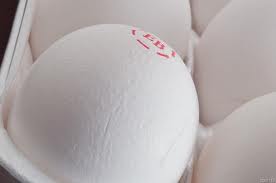
Higher quality proteins have another characteristic. They’re more easily digested and absorbed. This means the body has an easier time using them to build muscle and carry out other important bodily functions. Bodybuilders and athletes can benefit from consuming a source of high-quality protein that’s easily digested and absorbed after a strength training workout to supply their muscles with the protein they need for growth and repair.
Protein Quality Can Be Measured
The quality of a protein can be measured in several ways. One way is to feed a standardized amount of a particular protein to a person and see how much nitrogen they excrete in their feces and urine. Unlike carbohydrates and fat, protein contains nitrogen, so the amount of nitrogen excreted after consuming a standard amount of a protein under controlled conditions gives a rough indication of a protein’s quality. Higher quality proteins will be better absorbed and used by the body, so less nitrogen will be excreted.
Based on these results, researchers have assigned biological values to protein foods. These values can be used to compare one protein to another in terms of how well the body can absorb and use them. Biological value is a rough indication of a protein’s quality relative to another protein.
Which Protein Sources Are Highest in Quality
Whey protein, a protein isolated from milk, tops the list of protein sources with the highest biological values. Bodybuilders love whey protein because it’s quickly absorbed and rapidly reaches their muscles to start building lean body mass. Taking whey protein after a workout also speeds up muscle recovery and repair.
To get whey protein, you need to take a whey protein supplement or drink a shake with added whey. Whey isn’t found naturally in food since it’s a product of the conversion of cow’s milk to cheese.
The natural food source with the highest biological value for protein is the humble egg. It’s an underappreciated source of high-quality protein. Egg whites also contain egg protein but without the cholesterol. Eggs are an inexpensive source of protein, and they top the list of high-quality protein sources.
Other protein foods with high biological values are fish, beef and cow’s milk. Surprisingly, fish with a biological value of 83 outranks beef with a biological value of 80 on the quality scale. Chicken has a biological value of 79 and a milk value of 80.
In the plant protein arena, soybeans rank high with a biological value of 67. Rice, whole- grain wheat, peanuts are lower since they don’t have the full spectrum of essential amino acids the body needs.
The biological value of a protein is a simple and fairly accurate way to compare the quality of one protein to another. If you’re trying to build lean body mass, higher quality protein foods are the easiest for the body to digest and use, but plant-based protein sources also have benefits. Many such as beans, nuts and whole wheat contain vitamins and phytochemicals that meat-based protein sources don’t have. That’s a good thing when it comes to health.
References:
Exercise Physiology. Fifth edition. McArdle, Katch, and Katch. 2001.
Related Articles By Cathe:
2 Factors That Determine the Quality of a Protein
Can Eating a Higher Protein Diet Reduce the Risk of an Exercise-Related Injury?
Is Plant Protein as Satiating as Animal Protein?
Can You Build Muscle on a Plant-Based Diet?
Pros and Cons of Eating Plant-Based Protein
An Exceptional Source of Muscle-Building Protein You’re Probably Not Eating
Branched-Chain Amino Acid Supplements: Why You Don’t Need Them
I’m curious to know what you think of fat free Greek yogurt, since I haven’t heard it mentioned here. It’s quite high in protein. How would it compare with other sources of protein?
Greek Yogurt has the liquid portion of it (the whey) drained off. Therefore it is higher in the other major milk protein (casein) than in whey. I think of whey as a fast-acting protein and casein as more like a slow- release protein.
Good question about the greek yogurt. I prefer the Chobani, but I wonder if its too much protein..just in case you dont burn it off that day. Also, is it really better to have than say Dannon Light and Fit which is alot less calories. Cathe??
I get the plain fat free organic Greek yogurt (low in sugar, high in protein) and sweeten it myself with stevia. About 80 calories per 5.3 oz cup.
Fage 2% plain is my choice 20 gr. of protein..remember you don’t have to eat the whole container at once.